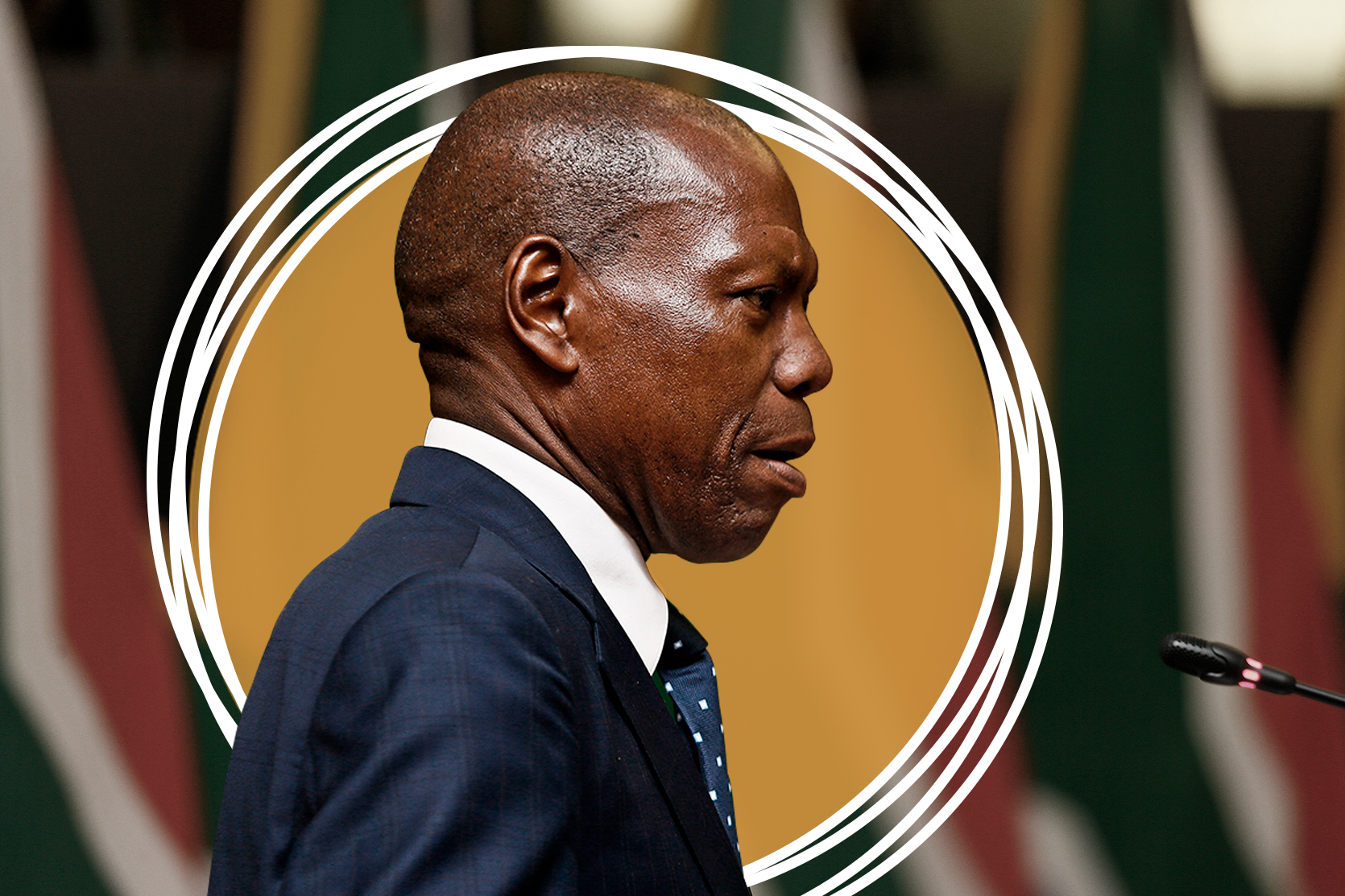
When then Health Minister Aaron Motsoaledi used a state hospital in 2013, the event was unusual enough to make headlines. Until then, it would have been unheard of for a senior politician to use a public hospital.
The fact that it was so unusual is due to the duality of South Africa’s health system – with high quality private care for those who can afford it and a straining public sector for those who cannot. According to Section 27, a public interest law centre, only 17 in 100 people in the country have private medical insurance. Private sector healthcare is 4,2% of gross domestic product (GDP), while public sector healthcare is 4,4% of GDP.
Until then, it would have been unheard of for a senior politician to use a public hospital.
The South African Constitution asserts that everyone has a right to access healthcare. That commitment is about to be tested. As the current health minister, Dr Zweli Mkhize, warned in early July: “The storm that we have consistently warned South Africans about is now arriving.”
By then, South Africa had the most confirmed Covid-19 cases in Africa, with more than two million South Africans tested and almost 300,000 infections. The pandemic has not discriminated. Infections have been registered from the country’s provincial premiers down to the unemployed. It is the access to services that remains unequal.
The South African Constitution asserts that everyone has a right to access healthcare. That commitment is about to be tested.
Covid-19 has severely tested our health systems and, some would say, they have all been found wanting. Few would disagree that the status quo is unacceptable – but government’s proposed solution does not have universal appeal. In an address to the nation on 12 July, 2020, President Cyril Ramaphosa said the government was committed to “laying the foundation” for a National Health Insurance (NHI) fund, which would enable “all people to have access to the quality healthcare they need regardless of their ability to pay”.
It might have been the moment for government to build confidence in its ability to produce a system built on principles of universality and social solidarity. The reality was very different. Despite a lockdown since 23 March, as the president was speaking, South Africa still had insufficient high- and intensive-care beds and nurses.
“The storm that we have consistently warned South Africans about is now arriving.” – Dr Zweli Mkhize.
For many, it was a stark reminder of what would happen if government was allowed to push ahead with the NHI. For others, it merely reflected an already overstretched health system that can barely cope and the very reason for why major change is necessary.
The coronavirus arrived soon after South Africans across the country were given an opportunity to have their say on what they wanted from the proposed NHI. When government officials travelled across the country, they heard the same complaints: frequent stockouts, dilapidated healthcare facilities and a general lack of resources. Covid19 has amplified these shortfalls.
Covid-19 has severely tested our health systems and, some would say, they have all been found wanting.
Health in South Africa should not be seen as the responsibility of one ministerial function, the ministry of health. Ultimately, a citizen’s health relies on other government ministries as well, particularly infrastructure, water and sanitation – and, of course, the Treasury.
The proposed NHI is essentially a financing system that aims to ensure that all South Africans have access to essential healthcare regardless of their income.
But South Africans are only too familiar with the huge gap between policy and implementation. Covid-19 has laid bare the failings – and interconnectedness – of our for-profit private health sector and a human rights-based public sector.
The proposed NHI is essentially a financing system that aims to ensure that all South Africans have access to essential healthcare regardless of their income.
Ramaphosa is not alone in pushing an NHI agenda during the pandemic. “The realisation of the National Health Insurance has been a road hampered by opposition, and a fundamentally flawed system that is being protected by those that benefited from it,” the Mkhize told a University of Western Cape 60th celebration in June.
The annual budgets of the private and public sectors were similar, said Mkhize, but the private sector served 16%, while the public sector served 84% of the population. “With such inequality, the public healthcare system has suffered in the sheer weight of the burden while the private sector was characterised by over-servicing in the face of rising and escalating healthcare costs.”
South Africans are only too familiar with the huge gap between policy and implementation.
No one disputes that this is unacceptable. Even the Competition Commission’s Health Market Inquiry recommendations, published in November last year, highlighted the gross inequity in healthcare. The NHI’s very essence is redistributive. It is to many the dramatic overhaul our health system needs.
The proposal has received some academic support. Professor Diane McIntyre, in a 2019 paper, argues that while there is room for improvement in the current NHI Bill, it does provide the basis for moving to a universal healthcare system. Under the proposed system, healthcare will be funded with a single pool of tax money to benefit everyone, while medical aids will only provide complementary coverage for services not covered.
But will this improve the country’s health services? For the majority of those unable to access the most basic of services, possibly. But, as McIntyre notes, South Africans lack trust in the government’s ability to manage such a large-scale undertaking and have legitimate concerns about the government’s track record as regards governance. A decade of misuse of public funds, weak governance and a general impunity from charges of corruption has not engendered much faith in the government.
Travel to the Eastern Cape province of South Africa and the impact of the failure to deliver is laid bare. A BBC investigation into health delivery in the province – which had over 50,000 confirmed infections and more than 700 deaths in early July – showed a system on the brink of collapse.
The pandemic has certainly not caused the fault lines in our health system, but it has exposed them. Despite having had more than 100 days of lockdown to prepare for the pandemic’s peak, South Africa still does not have enough beds for the expected rise in the number of serious cases needing hospital treatment. And the impact on healthcare workers has been high. By early July, 377 doctors, 2,473 nurses and 1,971 other health professionals, including community health workers, had been infected, according to Mkhize.
A BBC investigation into health delivery in the province showed a system on the brink of collapse.
Some provinces, such as Gauteng, are already running out of beds in both private and public hospitals. Gauteng’s Health MEC Bandile Masuku said his department expected a shortage of at least 800 beds by the end of July. Given this, and the concerns noted above, the pandemic might be an opportunity to test public-private health sector partnerships. Reports that provinces are signing service level agreements (SLAs) with private hospitals and health practitioners to provide intensive care unit beds point to much needed cooperation.
The negotiations around the proposed public/private partnership have been complex: private-sector doctors were concerned about payment levels and questions of legal indemnity; the health ministry and private sector organisations had to agree common structures and tariffs; and separate agreements had to be negotiated between private sector healthcare organisations and provincial administrations. Given the delays these discussions have caused, the country’s lack of preparation for the peak of the virus may not be entirely the fault of officials. However, their missteps also undermine trust that government has the capacity to implement the NHI.
Some provinces, such as Gauteng, are already running out of beds in both private and public hospitals.
It is not all bad news. As Steve Reid, a medical academic at the University of Cape Town argues, “the COVID-19 pandemic is shedding light on how best to go about building the NHI – and what to avoid”. On the positive side, South Africa has considerable technical expertise and capacity in governance, in health economics, in health systems, in information systems and in community participation in healthcare. However, he warns that the “acute crisis” of the pandemic has also seen the government acting through a top-down, centralised command structure.
“This is not how effective systems based on primary healthcare are built. In the absence of a design approach with clear cycles of learning and feedback of evidence from the ground up, the risk is that the whole NHI system will fail to be implemented,” he writes. “There are many examples of the ‘implementation gap’ between well-intentioned policy and actual practice in South Africa.”
“The COVID-19 pandemic is shedding light on how best to go about building the NHI – and what to avoid” – Steve Reid, medical academic at the University of Cape Town.
How the South African government manages the health response to the Covid-19 pandemic will influence levels of public trust in its ability to deliver the NHI. So, too, will its commitment to good governance in its handling of the crisis.
The best paragraph of the article. Is there some way we can give it prominence, or ask SP to highlight it when they dice it up for web publication? RJ: Yes agreed, Sue, could we make this a pullquote?












I am really inspired together with your writing skills and also with
the structure on your blog. Is that this a paid subject matter or did you modify it your self?
Either way keep up the excellent high quality writing, it’s uncommon to look a
nice blog like this one these days.. https://anunturi-parbrize.ro/index.php?page=144
Hi Luneta,
Many thanks for the response.
Our C-19 blog series is written by a group of journalists who have an interest and passion for African governance.
Thank you for the kind words. We look forward to hearing from you in the near future and kindly keep an eye on our page for more*
That is really attention-grabbing, You’re a very skilled blogger.
I have joined your feed and sit up for seeking
extra of your magnificent post. Additionally, I have shared your site in my social
networks
Hi Bernie,
Many thanks for your positive and kind words. Kindly keep an eye on our page for future articles and opinion pieces*
Good post! We are linking to this particularly great post on our website.
Keep up the great writing.
Hi Mariana,
Many thanks for your positive and kind words. Kindly keep an eye on our page for more*
This is a topic that is near to my heart…
Many thanks! Exactly where are your contact details though?
Hi Merlin,
Many thanks for your positive and kind words. Kindly contact us at info@gga.org for more*
Hi there, all is going well here and ofcourse every one is sharing
facts, that’s really excellent, keep up writing.
Hi Kami,
Many thanks for your positive and kind words. Kindly keep an eye on our page for more*
excellent submit, very informative. I’m wondering why the other specialists of this sector don’t notice this.
You must continue your writing. I am confident, you’ve
a great readers’ base already!
Hi Jame,
Many thanks for your positive and kind words. Kindly keep an eye on our page for more*
Heya i am for the primary time here. I found this board
and I find It truly useful & it helped me out a lot. I’m
hoping to offer one thing back and help others such as you aided me.
Hi Elwood,
Many thanks for your response and your kind words. Kindly keep an eye on our page for future articles and opinion pieces*
Hi there, this weekend is fastidious designed for me, because this moment i am reading this fantastic
informative piece of writing here at my house.
Hi Harris,
Many thanks for your response and your support. Kindly keep an eye on our page for future articles and opinion pieces*
Tremendous issues here. I am very glad to peer your article.
Thank you a lot and I’m taking a look forward
to touch you. Will you kindly drop me a e-mail?
Hi Faustino,
Many thanks for your response. Kindly contact info@gga.org for further assistance*
Do you mind if I quote a couple of your articles as long as I provide credit and sources back to your site?
My website is in the very same niche as yours and my visitors would truly benefit from some of the information you provide here.
Please let me know if this alright with you. Thank you!
Hi Demetria,
Many thanks for response. Kindly provide more details in regards to your organisation as well as where you will be publishing your articles.